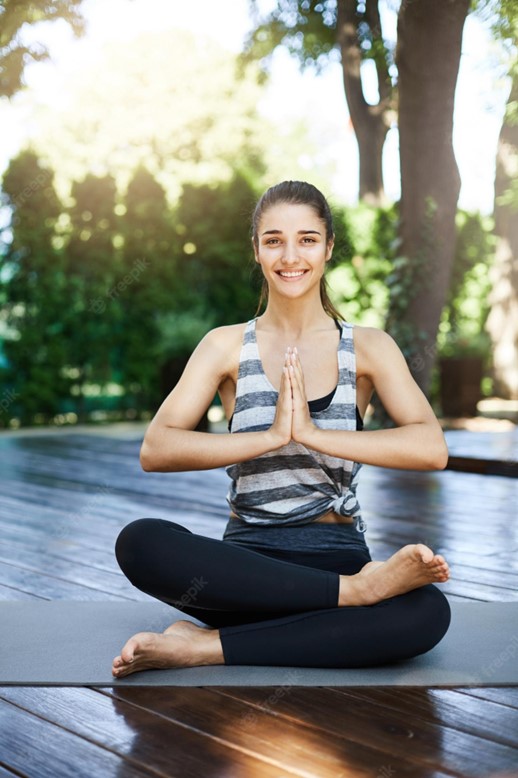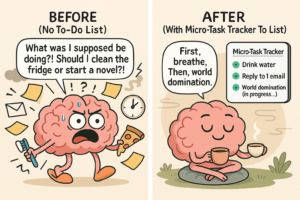How to start meditation as a beginner?

Source: FreeImages
How to start meditation as a beginner? Did you know that meditation is scientifically proven to reduce stress, improve concentration, and make you happier? If that’s not enough to convince you to give it a try ASAP, nothing will. In this blog post, you will learn everything you need to know about meditation as a beginner. From its benefits to how to get started with it. And, of course, we’ll also share some simple mediation techniques you can use from today onward.
What is Meditation?
Meditation is the act of focusing all your attention on one thing. This one thing can be a sound, a mantra, a sensation in your body, or a visual image. As you focus on this one thing, you learn to let all other thoughts go, and as a result, you experience a state of total stillness and peace. Meditation is not just an activity you do to pass the time on a Sunday afternoon, it’s a powerful tool that can have extremely positive effects on your life, health, and wellbeing. Meditation can help you reduce stress, improve your concentration and focus, become happier, experience more joy and gratitude, and have better relationships with yourself and others. It’s a practice that can benefit everyone, regardless of who you are or what you do for a living.
How Does Meditation Help?
- Meditation helps you reduce stress. When you’re stressed, your body produces excess cortisol, which is a hormone that breaks down your immune system, weakens your bones, and makes it harder for you to lose weight. Not only does meditation help you manage your stress better, it also lowers the amount of cortisol in your body. – Meditation makes you happier. When you regularly practice meditation, you train your mind to be more positive, and you also create new neural pathways that strengthen your ability to stay happy. – Meditation improves your focus and concentration. When you regularly practice meditation, you’ll find it much easier to stay focused on what you need to do, and you’ll be able to concentrate better on your tasks and projects. – Meditation makes you more grateful. When you regularly practice meditation, you’ll naturally become more grateful for the things in your life. As a result, you’ll have a greater sense of joy and appreciation. – Meditation makes you healthier. It lowers your blood pressure, makes you less stressed, and makes you happier, which are all factors that make it easier for you to stay healthy.
Start Meditating with Breathing Exercises
When you’re just getting started with meditation, you don’t have to tackle the full meditation experience head on. Instead, you can start with a simple breathing exercise that will help you familiarize yourself with the process of focusing your attention on one thing. You can use this exercise in a couple of ways. You can try it when you’re feeling stressed and it will help you calm down. You can also try it when you’re trying to get to sleep and prevent yourself from having nightmares. – To start off, lie down on your back, close your eyes, and take a few deep breaths. Focus on the feeling of your breath moving in and out of your body. – Once you feel relaxed, take a few more deep breaths and then turn your attention to your breathing. – Breathe in slowly through your nose and let the air travel down your chest, through your stomach and all the way down to your lower legs. – Hold your breath for a few seconds and then slowly let it out through your nose. – Repeat this exercise for five minutes or until you get so relaxed that you fall asleep.
Morning Meditation Ritual - Start your day with meditation: No matter if you’re a student, a full-time employee, a parent, or someone who owns their own business, you can benefit greatly from starting your day with meditation. When you start your day with meditation, you set yourself up to be more productive and less stressed. You’re also setting yourself up to be more focused and have a greater ability to stay focused on what you need to do throughout the day. – Find a quiet spot: When you start your day with meditation, you’re effectively training your mind to be more positive, peaceful, and focused. If you do this in a quiet place where there are no distractions, you’ll find it easier to stay focused and concentrate on your breathing. – Keep it short: You don’t have to spend hours meditating every morning. When you first start out, aim for five minutes of meditation. Later on, you can increase the length of your daily meditation session. – Use a meditation timer app: If you want to make sure you don’t spend too much time meditating in the morning, you can use a meditation timer app to keep track of the time and make sure you don’t go over the amount of time you want to spend meditating.
Evening Meditation Ritual - Start your day with mediation: If you’re a student, a full-time employee, a parent, or someone who owns their own business, you can benefit greatly from ending your day with meditation. When you close your day with meditation, you set yourself up to have a better night’s sleep, be less stressed, and have a better overall mood. You’ll also be setting yourself up for a better tomorrow. – Find a quiet spot: When you end your day with meditation, you’re effectively training your mind to be more positive, peaceful, and focused. If you do this in a quiet place where there are no distractions, you’ll find it easier to stay focused and concentrate on your breathing. – Keep it short: You don’t have to spend hours meditating every evening. When you first start out, aim for five minutes of meditation. Later on, you can increase the length of your daily meditation session. – Use a meditation timer app: If you want to make sure you don’t spend too much time meditating in the evening, you can use a meditation timer app to keep track of the time and make sure you don’t go over the amount of time you want to spend meditating.
Why is meditation so hard for beginners?
Most people who try meditation for the first time (including beginners) find the experience overwhelming. They feel restless, anxious, or unable to focus on their breathing. When this happens, most people assume that they’re doing something wrong, that they’re not cut out for meditation, and that they should give up trying. However, this isn’t the case at all. When you first start meditating, you’ll notice that your mind is all over the place. You’ll have trouble focusing on your breathing, and you’ll have all sorts of random thoughts running through your head. – This is because you’re not used to quieting your mind. When you regularly practice meditation, your mind becomes more focused and quiet. You’re able to focus on your breathing and silence your thoughts. – When you’re just starting out with meditation, it’s normal to feel restless, anxious, or unable to focus on your breathing. This is simply because you’re not used to quieting your mind yet. It’s nothing to worry about. – The best way to deal with this is to keep practicing and to not give up if it feels overwhelming when you first start out.
3 Simple Ways to Learn How to Meditate - Go to a meditation class: If you want to dive straight into meditation and you’re sure that you want to do it on a regular basis, you could try to find a nearby meditation class. – Try guided meditations: If you’re not sure that you want to fully commit to meditation just yet, you could try some guided meditations on YouTube or another online platform. – Teach yourself by reading a book: If you prefer reading to attending a class or listening to guided meditations, you could also try to find a meditation book that makes the process easier for beginners.
Conclusion
When you regularly practice meditation, you train your mind to focus better and become more positive. You also create new neural pathways that make it easier for you to stay focused on the things that matter to you. That’s why meditation is an extremely useful tool for almost everyone. No matter who you are and what you do for a living, you can benefit from practicing meditation on a regular basis. You can start by trying one of the three ways to learn how to meditate.




